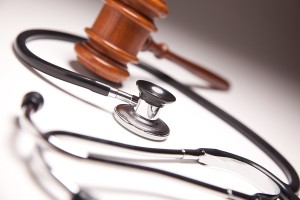
After a recent study was published indicating that six healthcare institutions owned by the University of Texas (UT) lacked uniform non-disclosure clauses in medical malpractice settlement agreements, UT decided to bar settlements from prohibiting involved parties from reporting to regulatory agencies. This issue shocked the lead author and other faculty members as it applies to developing better patient safety-oriented approaches.
Medical malpractice occurs when a doctor or other medical professional harms a patient because of a negligent act or omission. Negligence by a medical professional may include errors in diagnosis, treatment, or illness management.
Confidentiality That Goes Too Far
Specifically, the study found that these non-disclosure clauses were going too far—beyond what was needed to protect physicians and hospitals from disparagement—and, at times, bordered on interfering with medical error prevention-related feedback that could be helpful to hospital patients. Although some attorneys representing these institutions claim that, regardless of non-disclosure clauses, the institutions still have internal reviews to help prevent medical errors, many of these settlements not only prevented patients from revealing any details concerning medical errors, but also the doctors and hospitals, which, arguably, directly interferes with learning from mistakes and thus medical error prevention.
The Point of Settlement and the Importance of Preventing Medical Errors
The point of the publication was to get past this, and ensure that a certain amount of information is shared so that care can be improved and errors can be reduced, overall. As the study points out, “honesty and transparency are essential aspects of health care, including in physicians’ and hospitals’ responses to medical error.”
Many states (including Louisiana) have laws limiting the amount of damages that are recoverable in medical malpractice lawsuit settlements. This includes financial compensation for pain and suffering, for example. In Louisiana, health care providers are liable for only $100,000, and the rest is paid out of a compensation fund (up to $500,000). Thus, while settling instead of going to trial can sometimes make sense from a financial perspective (it is often quicker), incentivizing citizens to settle does not make sense if it is going to keep medical errors buried and possibly place other patients in danger.
Harrell & Nowak
Harrell & Nowak has been representing victims of medical malpractice in successful cases for years. Some of our recent successes for clients have included recovering over $40,000 in a personal injury and medical malpractice lawsuit for a man who was improperly prescribed coumadin after cardiac surgery and obtaining $40,000 for a pharmacy error and the resulting personal injury, amongst others.
Our attorneys have the experience, knowledge, and commitment necessary to pursue these claims and represent you for any suffering you have incurred as the result of medical error. Contact our New Orleans firm today for a free, confidential consultation.
